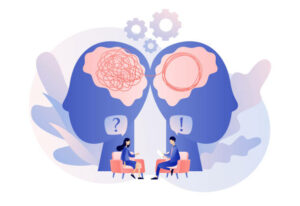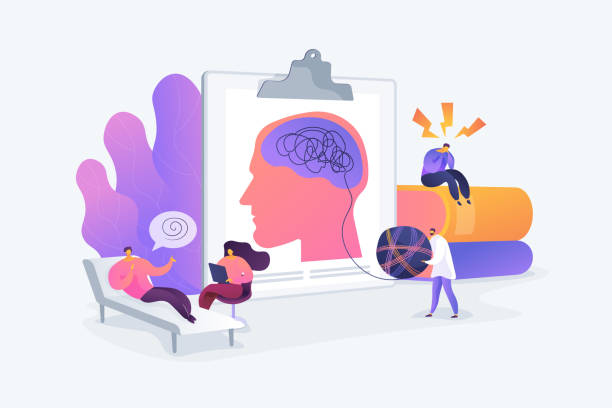Psychology is a fascinating field that explores the inner workings of the human mind and behavior. From studying emotions and personality traits to examining cognitive processes and social dynamics, psychology offers a wealth of insights into what makes us tick. In this blog, we will explore various psychological concepts and theories, using real-life examples to help illustrate their relevance and practical applications.
Contents
What Is Psychology?
Psychology is the scientific study of the human mind and behavior. It seeks to understand how people think, feel, and behave in different situations and environments. Psychologists use various research methods and theories to investigate different aspects of human behavior, including emotions, cognition, perception, motivation, personality, and social interactions. Psychology is a broad and diverse field, with many subfields such as clinical psychology, social psychology, developmental psychology, and cognitive psychology, among others. Its ultimate goal is to enhance our understanding of human behavior and improve people’s lives by applying scientific knowledge to real-world problems.
What Are The Psychological Examples?

Psychology provides many examples that help to illustrate the concepts and theories that researchers and practitioners explore. Some examples of psychological phenomena include:
Psychodynamic Perspective
This perspective focuses on unconscious psychological processes, childhood experiences, and the role of the unconscious mind in shaping personality and behavior. An example of this perspective is Freud’s theory of psychoanalysis, which suggests that people’s behavior is influenced by unconscious conflicts, desires, and instincts.
Behavioral Perspective
This perspective emphasizes the role of environmental stimuli in shaping behavior. It suggests that behavior is learned through conditioning and reinforcement. An example of this perspective is Skinner’s theory of operant conditioning, which suggests that behavior is shaped by its consequences.
Cognitive Perspective
This perspective focuses on mental processes such as perception, memory, and problem-solving. It suggests that behavior is influenced by the way people interpret and process information. An example of this perspective is Piaget’s theory of cognitive development, which suggests that children’s thinking and problem-solving abilities develop through different stages as they grow.
Biological Perspective
This perspective emphasizes the role of biology and genetics in shaping behavior. It suggests that behavior is influenced by the structure and function of the brain, hormones, and other physiological factors. An example of this perspective is the study of the effects of neurotransmitters on mood and behavior.
Cross-Cultural Perspective
This perspective examines the role of culture and social context in shaping behavior. It suggests that behavior is influenced by cultural norms, values, and beliefs. An example of this perspective is the study of cultural differences in communication styles or attitudes toward mental health.
Evolutionary Perspective
This perspective emphasizes the role of natural selection and adaptation in shaping behavior. It suggests that behavior evolved over time to enhance survival and reproductive success. An example of this perspective is the study of mating strategies or aggressive behavior in animals and humans.
Humanistic Perspective
This perspective emphasizes the role of subjective experience, personal growth, and self-actualization in shaping behavior. It suggests that behavior is influenced by people’s need for meaning, purpose, and fulfillment. An example of this perspective is Maslow’s hierarchy of needs, which suggests that people are motivated to fulfill basic needs before pursuing higher-level needs.
What Are The Types Of Psychological Theories?
There are many types of psychological theories that attempt to explain human behavior and mental processes. Here are some examples:
- Developmental Theories: These theories focus on the different stages of human development and how people change and grow over time. Examples of developmental theories include Piaget’s theory of cognitive development, Erikson’s psychosocial theory, and Kohlberg’s theory of moral development.
- Grand Theories: These are comprehensive, overarching theories that attempt to explain all aspects of human behavior and mental processes. Examples of grand theories include Freud’s psychoanalytic theory, Skinner’s behaviorism, and Maslow’s hierarchy of needs.
- Mini-Theories: These are more narrow in scope and focus on specific aspects of human behavior or mental processes. Examples of mini-theories include self-determination theory, which focuses on the motivation behind human behavior, and cognitive dissonance theory, which examines the mental discomfort that arises when people hold conflicting beliefs.
- Emergent Theories: These are new theories that emerge from research and observations in the field of psychology. They may incorporate elements from other theories or offer a fresh perspective on a particular phenomenon. An example of an emergent theory is positive psychology, which focuses on the study of human flourishing and well-being.
Overall, each type of psychological theory serves a unique purpose and contributes to our understanding of human behavior and mental processes. By studying and applying these theories, psychologists can gain insights into the complexities of the human mind and develop interventions to improve people’s lives.
The Purpose of Psychological Theories

The purpose of psychological theories is to explain and predict human behavior and mental processes. These theories provide frameworks for understanding how people think, feel, and behave in different situations. They help researchers identify patterns and relationships in data, generate testable hypotheses, and design experiments to test those hypotheses. Psychological theories also guide the development of interventions and treatments for a wide range of psychological disorders and problems, such as anxiety, depression, addiction, and interpersonal conflicts.
Moreover, psychological theories help us organize and synthesize complex information about human behavior, making it easier to communicate and share knowledge with others. They also provide a basis for interdisciplinary collaborations, allowing researchers from different fields to work together to solve complex problems.
Overall, psychological theories play a crucial role in advancing our understanding of human behavior and mental processes. They provide a framework for organizing and interpreting information, guide the development of interventions and treatments, and generate new knowledge and ideas for further research.
Conclusion
In conclusion, psychology is a multifaceted field that encompasses various perspectives and approaches to understanding human behavior. The examples provided above illustrate some of the key concepts and theories in psychology. By studying these examples, researchers and practitioners can gain insights into how people think, feel, and behave, and develop interventions and strategies to address real-world problems.
For more information, please contact MantraCare. A psychologist is a professional who specializes in the study of human behavior and mental processes. If you have any queries regarding Online Therapist experienced therapists at MantraCare can help: Book a trial therapy session


